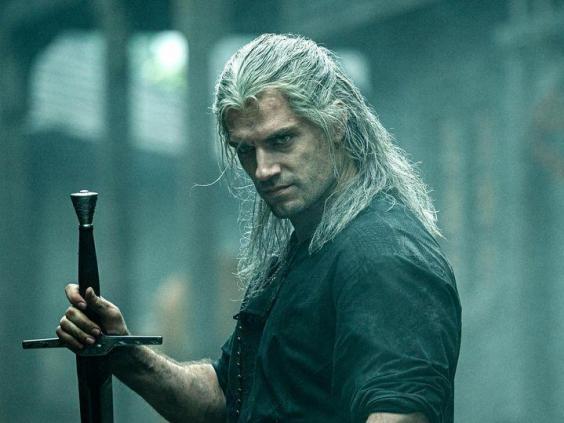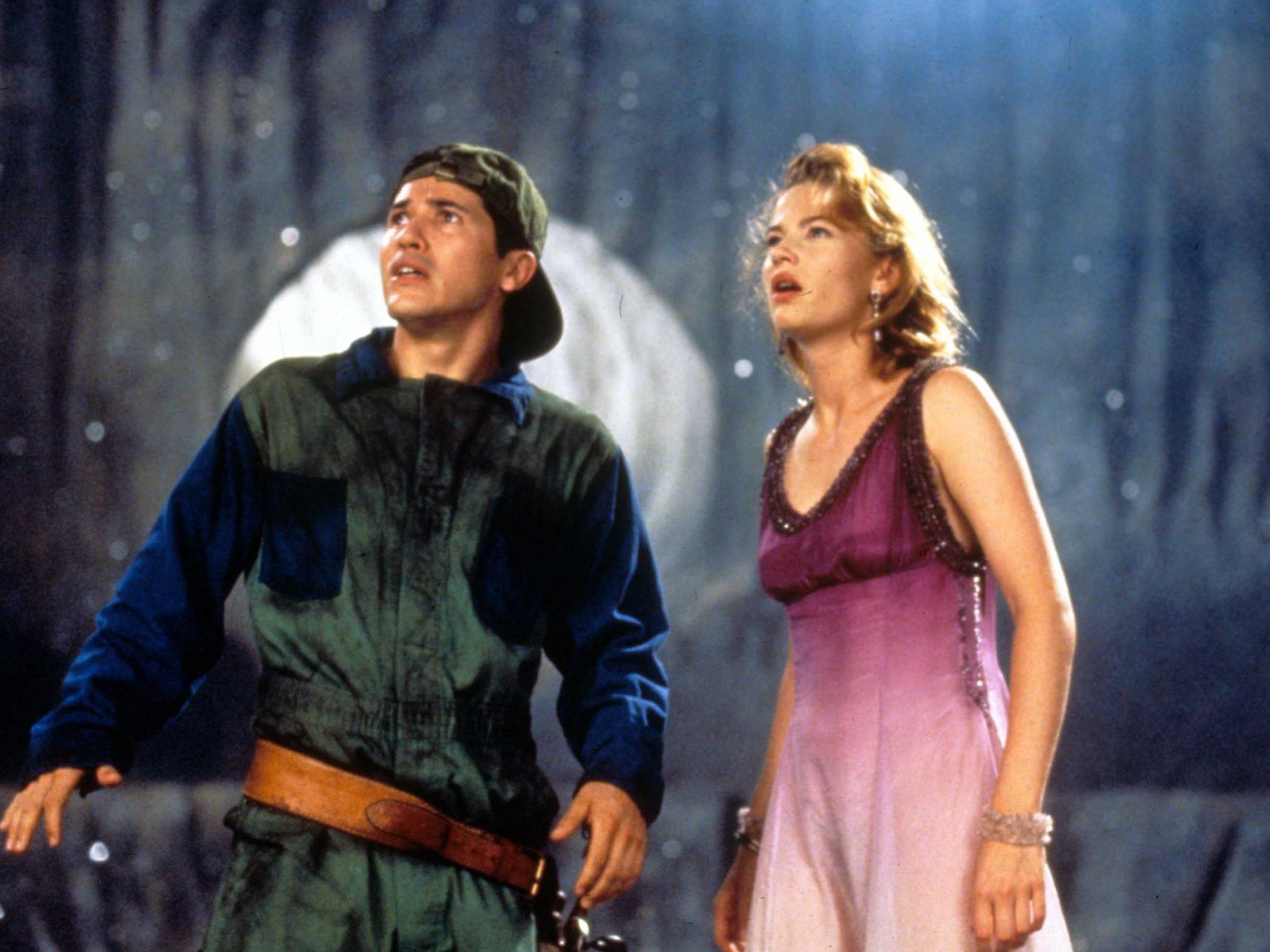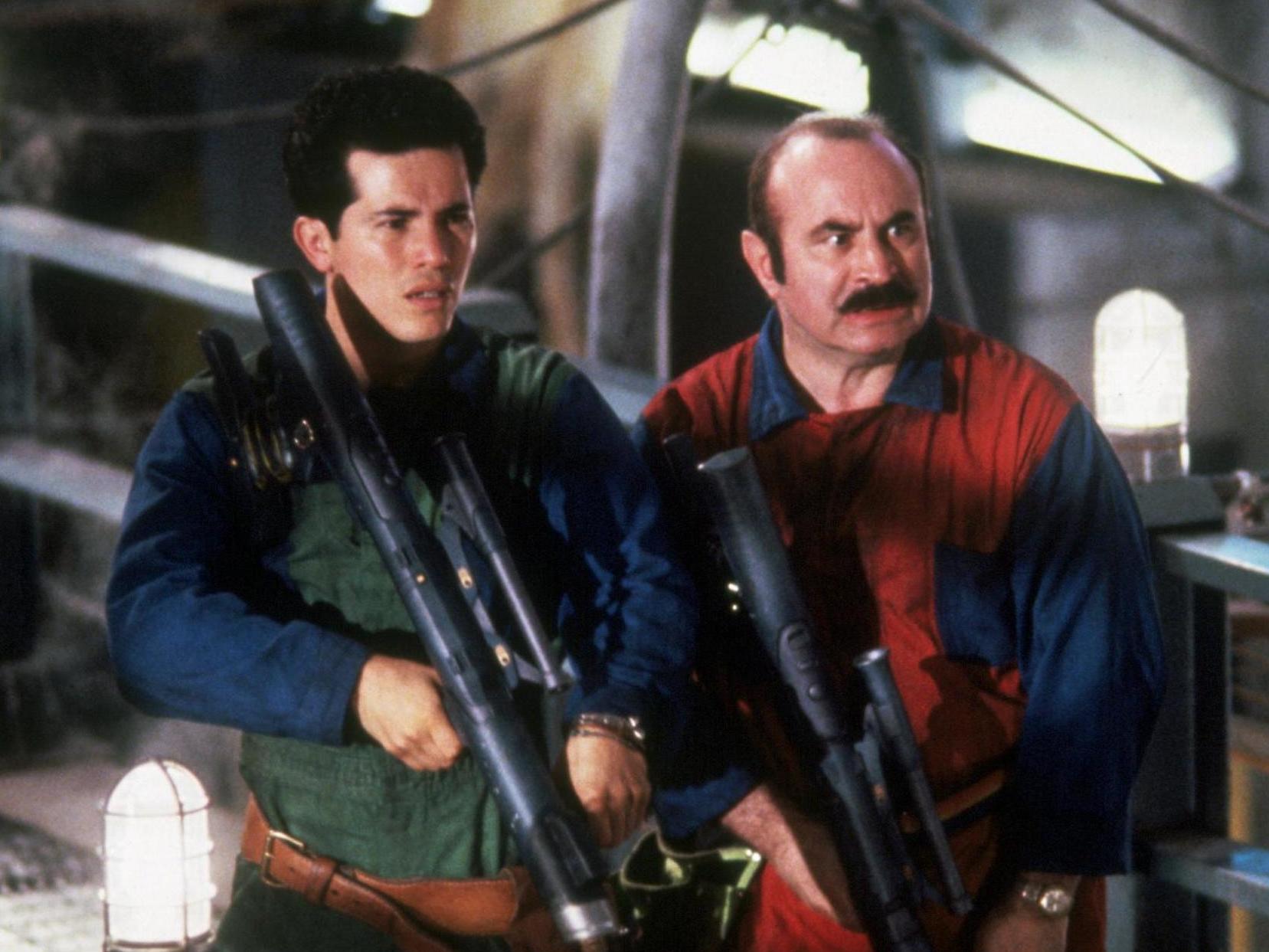Your support helps us to tell the story
From reproductive rights to climate change to Big Tech, The Independent is on the ground when the story is developing. Whether it's investigating the financials of Elon Musk's pro-Trump PAC or producing our latest documentary, 'The A Word', which shines a light on the American women fighting for reproductive rights, we know how important it is to parse out the facts from the messaging.
At such a critical moment in US history, we need reporters on the ground. Your donation allows us to keep sending journalists to speak to both sides of the story.
The Independent is trusted by Americans across the entire political spectrum. And unlike many other quality news outlets, we choose not to lock Americans out of our reporting and analysis with paywalls. We believe quality journalism should be available to everyone, paid for by those who can afford it.
Your support makes all the difference.Asked if he had any regrets in his career, Bob Hoskins didn’t hesitate. “The worst thing I ever did? Super Mario Bros,” the actor said. “It was a f***in’ nightmare. It had a husband-and-wife team directing, whose arrogance had been mistaken for talent.”
He was speaking in 2007, 14 years after starring in the notoriously dysfunctional take on the hit Nintendo video game. And yet the tremor in his voice had been unmistakable. Hoskins had graced the occasional turkey across his decades in the industry. Super Mario Bros was clearly a different class of clunker. He sounded more than slightly scarred by the experience.
Video game adaptations are so ubiquitous nowadays that we tend not to even think of them in those terms any more. The recent Detective Pikachu was received as a surreal kids comedy starring Ryan Reynolds. Last year’s Rampage was sold as a vehicle for Dwayne Johnson rather than a bid to revitalise an obscure Eighties arcade title.
Similarly, the imminent arrival of Netflix’s retelling of The Witcher saga is perceived as the streaming kingpin’s attempt to carve out its own Game of Thrones. But, in fact, the new series, starring Henry Cavill as titular anti-hero Geralt of Rivia, comes to us in the shadow of CD Projekt Red’s best-selling trilogy of console romps.
True, the makers of the TV show have insisted their Witcher is based on the original Andrzej Sapkowski novels. Nonetheless, Cavill is known to be a fan of the games and his monster hunter “Witcher” clearly emulates CD Projekt Red’s vision of Geralt. Moreover, the pre-existing fanbase Netflix is seeking to tap is self-evidently that of the games rather than the books (largely a cult affair outside of Sapkowski’s native Poland).
In the early Nineties, however, the relationship between Hollywood and the gaming industry was very different. Video games were regarded as a distraction for children and not something in which it was necessarily appropriate for grown-ups to take an interest. They occupied the bottom rung today reserved for movies based on popular toys.

But that hadn’t prevented Nintendo from letting it be known it was open to bringing its brightest blockbuster, the Super Mario series, to the screen. A Super Mario Bros film undoubtedly made sense: the games were action packed, brimming with visual humour and slapstick fun. What’s more, the plot, in which moustache-sporting siblings Mario and Luigi set off to rescue Princess Daisy from dastardly King Koopa, felt perfect for kids.
So how did this straightforward premise end up as the bizarre and, frankly, disturbing Super Mario Bros movie? More Cronenberg than Donkey Kong, it imagined a secret city underneath New York where the dinosaurs have taken refuge after an asteroid struck Earth (“Dinohattan”). And instead of the bouncy Mario, Luigi and Koopa, it set the odd-couple pairing of Bob Hoskins and John Leguizamo against Dennis Hopper, reprising the maniacal energy he had brought to David Lynch’s Blue Velvet. The surprise ultimately wasn’t that Super Mario Bros brought in just $20m (£15m). It was that anyone saw it at all.
“It doesn’t know what kind of movie it wants to be,” wrote Adam Bertocci in a recent appraisal of Super Mario Bros published on fanzine Smbmovie.com. “It’s a kiddie movie sometimes, a weirdo cult comedy at others, part dark sci-fi, part wacky-ass romp, and the disparate elements collide like bumper cars when they ought to resolve into a satisfying whole. Plot threads never quite congeal, and stray ideas stick out like sore thumbs on reptiles that somehow evolved them.”
In hindsight, it seems almost inevitable that the film would be a shambles. Rather than pair up with a bigger studio, Nintendo had opted to partner with fledgling mogul Roland Joffe. The director of The Killing Fields and The Mission was looking to get into producing. He convinced Nintendo to entrust him with Super Mario after granting it exclusive merchandising rights (which a bigger studio would have refused).
His pitch to Nintendo executives in Kyoto centred on the idea of a “darker” Mario universe. This was to be as much for adults as children. Nintendo’s logic was that Super Mario was such a commercial juggernaut that a big-screen version wouldn’t really impact much either way. Why not dip a toe and see what transpired? “They looked at the movie as some sort of strange creature, [intrigued] to see if it could walk or not,” said Joffe at the time.
The plan initially was to cast Dustin Hoffman as Mario. He would be working from a script by Barry Morrow, who had won an Oscar for Rain Man. Morrow’s treatment presented the relationship between plumber siblings Mario and Luigi as a fraught psychological affair (it was dubbed “Drainman” by the crew). This was ultimately judged too bleak; meanwhile, the president of Nintendo North America expressed reservations about casting method-man Hoffman
Next Tom Hanks negotiated a $5m (£3.8m) deal to star, but then Joffe and his team blanched. The feeling was that Hanks was asking for too much given that he was coming off a string of flops (most recently Bonfire of the Vanities). Eventually, the script – a new, frothier one by Flintstones writers Jim Jennewein and Tom S Parker – found its way to Bob Hoskins.
He had some experience of children’s movies with 1988’s Who Framed Roger Rabbit? And with recent turns opposite Cher in Mermaids and Robin Williams in Hook, the gruff north Londoner was warming to the idea of becoming a Hollywood star. He had no idea Super Mario Bros was adapted from a video game – his seven-year-old son later filled him in – but signed on enthusiastically.
“I’m the right shape,” he joked at the time. “I’ve got a moustache. I worked as a plumber’s apprentice for about three weeks and set the plumber’s boots on fire with a blowtorch.”
As his younger brother, John Leguizamo was perceived as a safe pick. He was an up-and-coming heartthrob, who had grown up in a tough neighbourhood in Queens. This made him perfect given that the (new) script pitched Mario and Luigi as rough at-the-edges New Yorkers.
The biggest headache was casting “big bad” King Koopa. Arnold Schwarzenegger turned Joffe down, as did Michael Keaton. In the end, Dennis Hopper signed on, intrigued by Jennewein and Parker’s kid-friendly screenplay. Fiona Shaw was to play his sidekick Lena.
Overseeing it all would be fledgling husband and wife directors Rocky Morton and Annabel Jankel. They’d been hired on the strength of their work on Channel 4 future satire Max Headroom. When they arrived at the sprawling five-story set at Castle Hayne, North Carolina, their first act was to throw out most of the script and steer the project in a bleaker direction.
They were, above all, keen to dispense with most of the Super Mario elements of Super Mario Bros. The look they envisaged was supremely gritty: closer to Blade Runner than the bright, bouncy Nintendo aesthetic.
“I wanted the film to be more sophisticated,” Morton would later say. “I wanted parents to really get into it. At that time, there was a very hardcore movement against video games, and a lot of anti-video games sentiment. I wanted to make a film that would open it up and get parents interested in video games. It’s completely different now, but back then it was taboo to make a movie based on a video game.”
What could go wrong? Everything, it quickly became clear. When the Los Angeles Times accompanied Disney chairman Jeffrey Katzenberg to the North Carolina facility in 1992 – he was there to agree a distribution deal – it found a set teetering on open revolt against the directors.
Hoskins and Hopper brooded in their trailers. They were aghast at the constant script revisions with which they were presented as Joffe tried to rein in Morton and Jankel.
“All these rewrites get frustrating so I don’t do too much research,” said Hoskins, his tone described as “grim”. “The trick is: don’t take the job too seriously, turn up and do your day’s work. That’s all.”
“I suspect it will probably be rewritten,” said Hopper as he looked askance at his latest page of dialogue. “The script had probably been rewritten five or six times by the time I arrived here. I don’t really bother with it anymore. I just go in and do it scene by scene. I figure it’s not going to hurt my character.”

But he did grow bothered – very, very bothered. Further into the shoot Hopper had a notorious 45-minute meltdown during which he turned the air several shades of blue ranting at Morton and Jankel. “He just starts screaming at Annabel and Rocky,” actor Richard Edson would remember. “He’s telling them they’re completely unprofessional, that he’s never seen anything like this. Rocky says ‘Dennis, what is it?’ And he yells: ‘You rewrote my lines! You call this writing? This is s**t! It’s s**t! And the fact you’d do it without asking me?’ He went on and on. He couldn’t control himself.”
Morton and Jankel didn’t make things any easier with reports of high-handed behaviour. At one point, Morton is said to have poured hot coffee over an extra in order to give them a grungier look. The extra had cried out in pain. And they alienated Shaw by forcing her to drink from a shot glass containing a worm. “Assuming the worm was fake, she’d done as directed – only to find it wiggling from her lips,” observed LA Times reporter Richard Stayton during his visit to the set. “Shaw had maintained her professional composure until after the take. The directors loved it so much they’d asked her to do it again. She had reluctantly done so... and did it again... and again...”
“The first script I got was witty,” complained Shaw. “That was maybe 10 scripts ago. Now they’re talking about taking a bath with worms.”
Rumblings of disquiet reached Joffe. He had hired Bill and Ted’s Excellent Adventure writer Ed Solomon to knock out a new screenplay. The caveat was that he wasn’t allowed speak to Morton and Jankel. “It just got rushed into production with a script that had been written two weeks before principle photography, and which had no input from either Annabel or myself,” Morton would complain. “Most of the actors had signed up on the old script, not the new script, so it was very hard to coax them into this new one. I don’t think anyone was really happy with the end result.”
Everyone involved by now understood they had been roped into disaster. Hoskins and Hopper, the occasional tantrum notwithstanding, put their heads down and tried to get through it. Leguizamo turned to scotch. This yielded interesting results when, during a driving scene with Hoskins, he slammed a door on his co-star’s hand.
“Every day’s a new page,” said Leguizamo, complaining about the constant revisions. “It’s like waiting for the news. What the hell happened yesterday? And there it is: al new, all live. 24 hours: Ding, ding, ding.”
Super Mario Bros was predictably savaged when it finally bounded into cinemas in May 1993. “Wildly overproduced,” lamented Variety. “It will baffle kids, bore adolescents, and depress adults,” said Time Out.
It certainly depressed Joffe, as the project recouped less than half its $48m (£36m) budget. Fearing its brand could be tarnished, Nintendo immediately severed its connections with Hollywood, which explains the absence of a Legend of Zelda film and why it took Pokemon so long to come to the screen.
“It was a very fun project that they put a lot of effort into,” the creator of the original Super Mario games, Shigeru Miyamoto, would diplomatically tell Edge magazine in 2007. “The movie may have tried to get a little too close to what the Mario Bros video games were. And in that sense, it became a movie that was about a video game, rather than being an entertaining movie in and of itself.”

Join our commenting forum
Join thought-provoking conversations, follow other Independent readers and see their replies
Comments